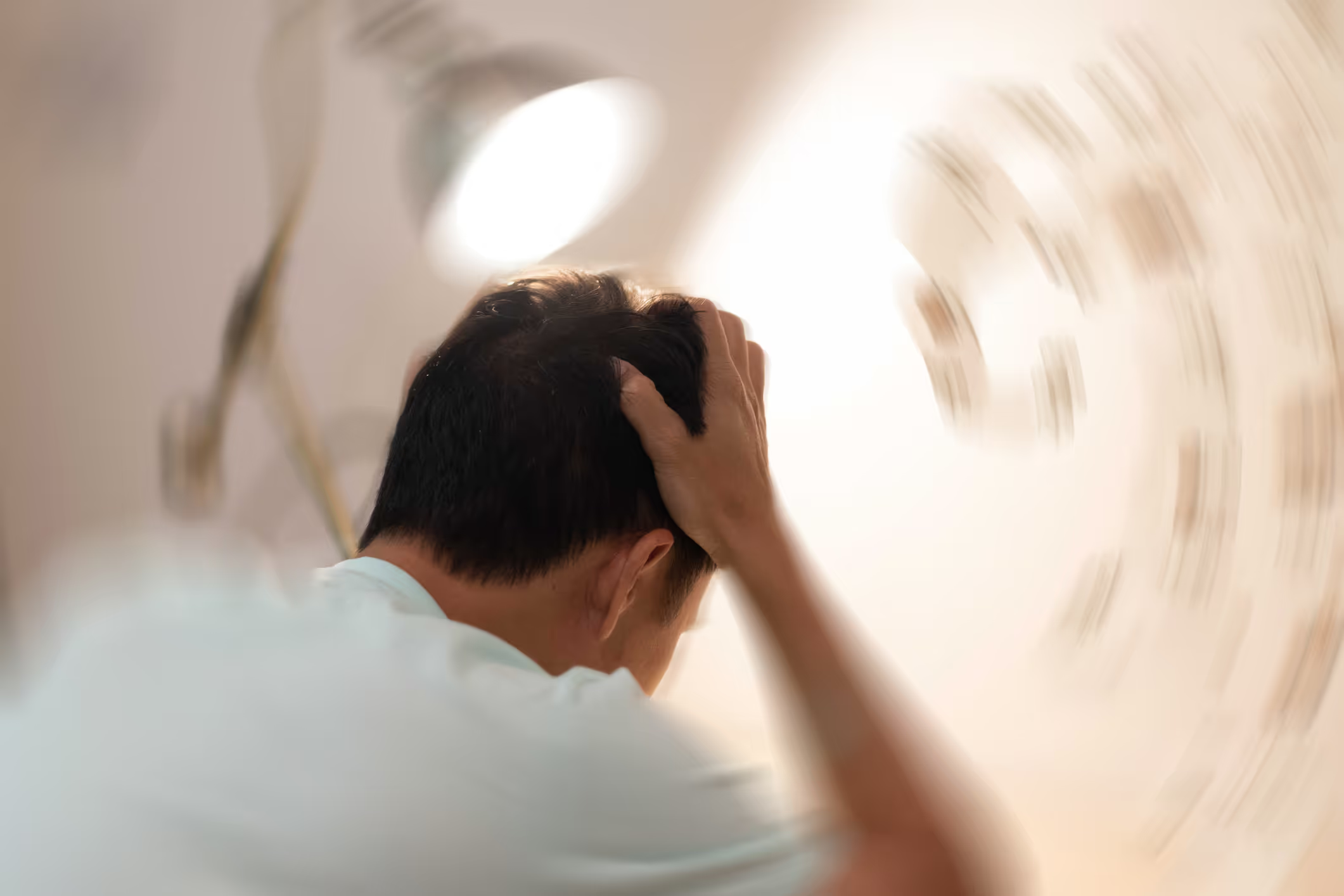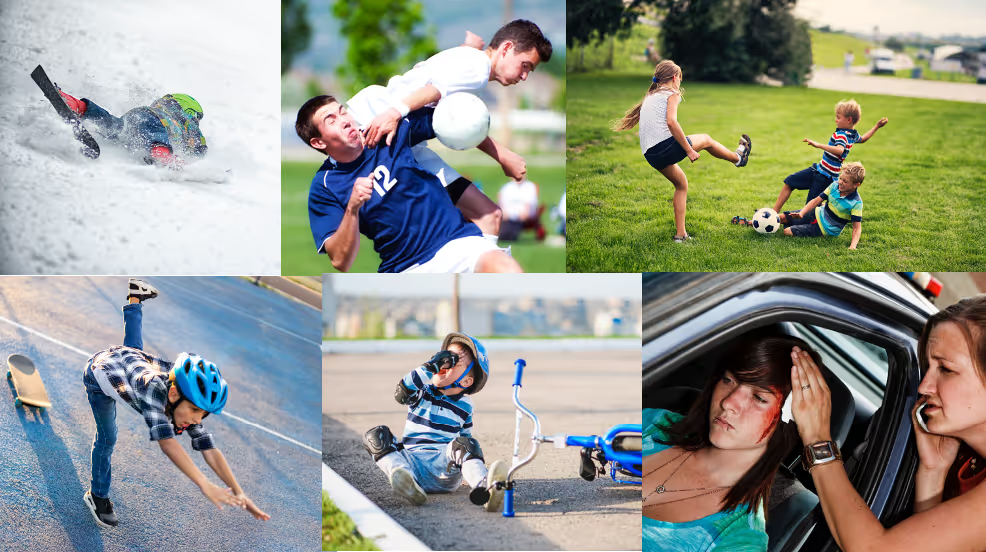New life with tailored neurological rehabilitation
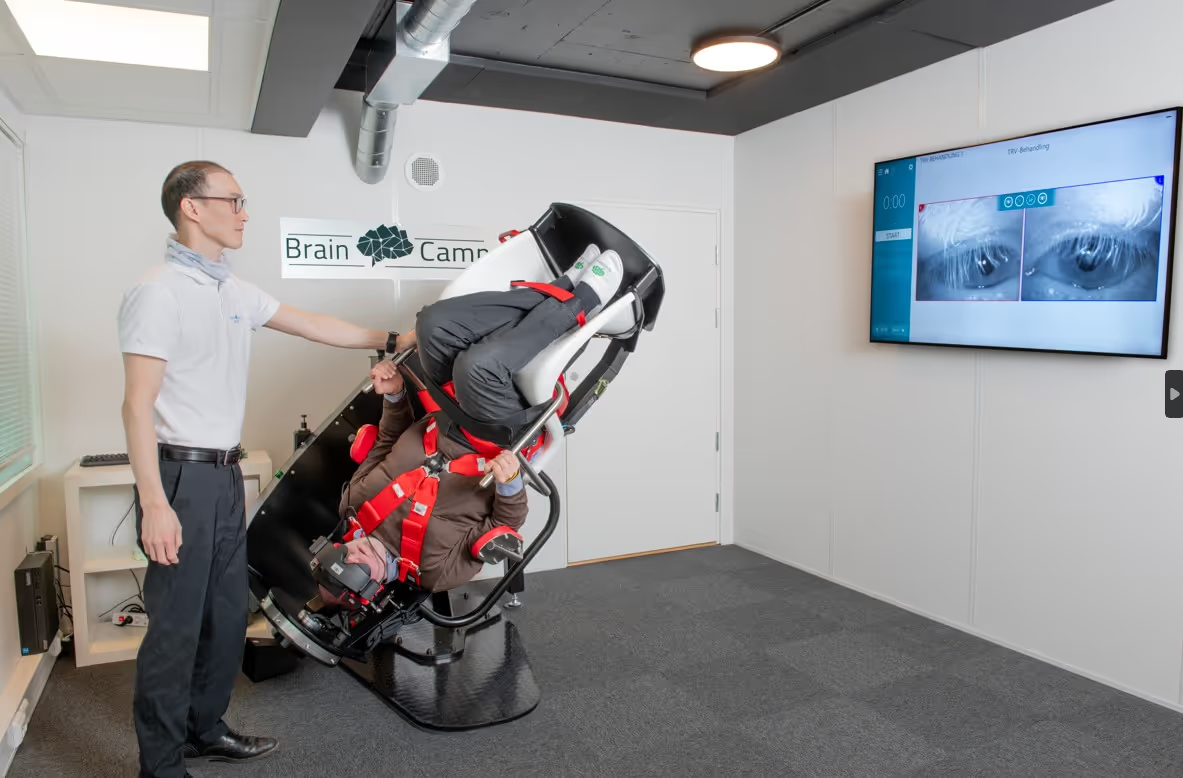
Using computer-based tests, neuroscience and advanced technology, Brain Camp can tailor neurological rehabilitation to both children and adults with neurological diseases and injuries. This includes various types of dizziness, Parkinson's, dystonia, multiple sclerosis, chronic concussion syndrome and whiplash syndrome.
Research shows that when the brain and nervous system are affected by disease or injury, it is not only the part or parts of the brain that are affected that suffer functional disorders. There are also secondary functional disorders in other parts of the brain and nervous system.
This is probably about the brain trying to compensate for the functional disturbances in the diseased and damaged centers of the brain. It turns out that healthy brain centers, which are not normally used during a particular action, begin to communicate with other related and unrelated areas. There becomes an uncoordinated activity in the brain, with some parts working more than others.
This can lead to a chain reaction of miscompensation and secondary functional disorders that exacerbate the symptoms and can cause a number of other accompanying symptoms, such as fatigue and difficulty concentrating.
A paradigm shift
Kim Tore Johansen is a chiropractor with further training in neuroscience and neurological rehabilitation at Brain Camp. He says that traditional rehabilitation attacks the main symptoms.
- "You try to train the parts of the body in which the patient has symptoms, but this has limited effect. Now we're seeing a paradigm shift in a form of rehabilitation that gives much better results," says Kim.

Mapping the brain
At Brain Camp, they begin by conducting computer-based tests that map which parts of the brain are doing a good job and which parts of the brain are malfunctioning. The tests provide objective information about how the different parts of the brain work, and how the brain manages to gather and process impressions and produce actions.
- We use this information to put together a rehabilitation plan, but it's frequent re-testing that is key to see if the brain and nervous system are responding as we want. This is how we can tailor neurological rehabilitation to each individual," says Kim.
- If we can help the brain to coordinate and process sensory impressions in an orderly manner, it becomes easier for the brain to receive information and process impressions in a smoother and less strenuous way. It becomes easier for the brain to produce and send signals. The brain becomes better at multitasking and coordinating," he continues.
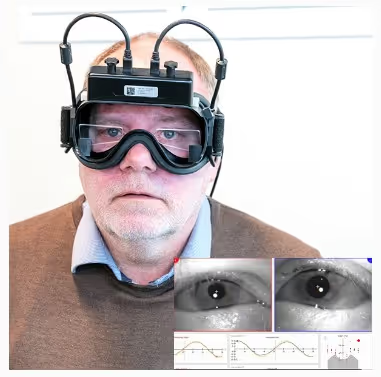
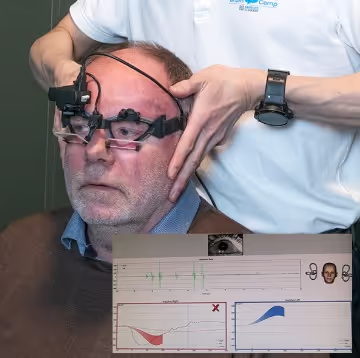
Parkinson's disease
Parkinson's is a degenerative disorder that affects the brain. Kim explains that when the brain has difficulty coordinating and processing sensory information, the part of the brain that receives signals and sends them to other parts of the brain is affected.
- This creates further challenges in producing motor movements. Research shows that such impaired coordination and processing of sensory impressions also causes impaired neuroplasticity, which is the brain's ability to create new networks," he says.
Scientific approach
Bjørn Skare has Parkinson's disease. He has been undergoing treatment at Brain Camp since 2021 and has gained a whole new quality of life.
- "I had a lot of pain in the right side of my body all the time. I also had a lot of shaking in my body, including in my eyes. I was dizzy and had fatigue," says Skare.

- I was very skeptical about Brain Camp. I don't believe in miracle cures and I'm not one for opinion. But Kim convinced me with his analytical and scientific approach. That has been very important to me," he says.
Got his life back
After treatment and home training, the pain on the right side has completely disappeared. The shaking has improved, including the shaking in the eyes. The dizziness and balance have improved a lot.
- It's absolutely fantastic. One of my great passions is sailing and skiing. Now I can do both. It has a huge impact on my enjoyment of life. I also notice that I'm much less tired," he says, and adds:
- Today, I have the quality of life I want.
Damage to the balance nerve and organ
Magnus Myrhaug has a condition called bilateral upper arch dehiscence, which causes holes and cracks in the temporal bone that separates the inner ear from the rest of the brain. He suffered permanent damage to the balance nerve in his left ear during an operation to close these holes, as well as deafness and severe tinnitus. In addition, he has developed complex chronic sequelae such as Persistent Postural Perceptual Dizziness (PPPS) and vestibular migraine.
- It's very disabling. I struggle with dizziness and fatigue, and cognitive problems such as brain fog. I'm very sensitive to sound and light and have a lot of headaches and nausea. The muscles in my neck and shoulders are stiff, and I have digestive problems. These are quite invasive symptoms, and I'm mostly just at home," says Magnus.
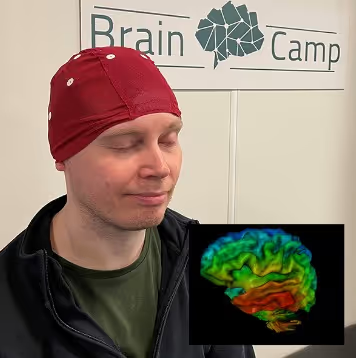
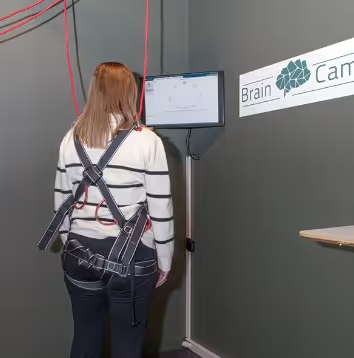
Clear improvement after three days
Magnus feels that the public healthcare system can't do anything more to help him. But one day, his mother-in-law happened to come across Brain Camp. Magnus got in touch, and three weeks later he was admitted for testing.
- I was there for five days of testing and training, and already after a couple of days my brain fog, balance and coordination improved significantly. These symptoms still vary a lot from day to day," says Magnus.
- "I've encountered a lot of lack of expertise in the public healthcare system, and I finally felt that I was taken seriously at Brain Camp. No one can say for sure how the program will work, but I choose to be hopeful," he says.
Concussion and whiplash
Nina had a serious cycling accident in 2010 and suffered chronic concussion syndrome and whiplash syndrome. After the accident, she suffered a lot of stiffness and pain in her back and neck. Her neck was weak and she couldn't sit for long periods of time without resting her head against something. The best thing was to lie down.
She also suffered from headaches, impaired balance and coordination, fatigue and exhaustion, which in turn led to reduced tolerance to activity and sensory input.
- Nina came to me in 2022. By then, she had been alone with her symptoms for twelve years. I did a thorough computer-based study to map how her brain processed and coordinated different sensory impressions," says Kim.
Already three months after starting treatment, Nina felt major improvements in her symptoms, and after a year and a half of tailored neurological rehabilitation, Nina's everyday life is almost normal. The intensity of her symptoms has been reduced by 80 to 90 percent. The brain fatigue and exhaustion are gone. Today, she lives almost as before.
- "It's very gratifying that our approach is able to improve symptoms after tailored neurological rehabilitation. We can help people get their lives back," says Kim.
By Marte Frimand
